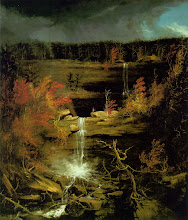Summary:
In Poetics, Aristotle presents structural, stylistic, and narrative elements writers should include when creating a great play or poem. He notes that all writers rely on imitation, whether instinctive or cultivated. He then lays out in order of importance many key elements to the plot, which he places over character development, such as “recognition,” as well as which types of plot devices will render the “best” outcome.
Assumptions-Shared Values:
Aristotle assumes that there are rigid rules regarding the writing of “the perfect” comedy or tragedy, and that he knows what they are.
He also assumes what is “best” can be defined by one person.
Men hold more value than women (XV).
New Values:
When writing a play, consider your audience (XVII).
When creating characters, make the “likeness…true to life…yet more beautiful” (XV).
Questions:
Why does Aristotle try to define one type of play as “superior” to another? Why is it important to classify tragedy as “superior to epic poetry” (XXVI)? Why must one be better?
Links:
I am amazed at how long Aristotle’s “rules” lasted. I realize that there is a gap between the author’s period and the Renaissance when his works were rediscovered. Still, many writers through first half of the nineteenth century followed his concepts regarding the “unity of plot” (VII, VIII). Not all followed his rigid ideas. Shakespeare clearly breaks some of these rules, especially in Romeo and Juliet where he mixes comedy with tragedy.
Later, Ibsen breaks the tradition of the five act play. Imagine a modern critic having that kind of reach!
Subscribe to:
Post Comments (Atom)
.jpg)
.jpg)
.jpg)
No comments:
Post a Comment